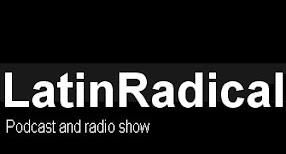Radical Film Premiered in Nimbin!
A surprisingly involved and interested two dozen Nimbinese turned up to the Australian premiere of “We are not Afraid” (‘Quien Dijo Miedo’) - documentary video by independent film maker Katia Lara and producer Carlos del Valle, pulled out of the media blockade against Honduras.
The independent Venezuelan and other film crews were evicted by the coup regime, leaving only CNN-sanitised news that tried to convey the impression that ‘everything is normal’ (except for a few troublemakers, of course).
Those ‘not afraid’ to stay away from this seminal documentary on a cold Nimbinese winter evening did not regret the experience. The video will be shown in all the major cities of Australia over the next month. And perhaps on SBS national TV. Fingers crossed. …
The narrative of Honduran coup (June 28, 2009) is complex, if the distracting details are engaged. In the last six months of last year it must have been a dizzying task to follow the machinations of the US State Department, the manipulation and bullying of the Latin American national community to enforce a recognition of the coup regime, and the regime’s outrageous violation of human rights, international legal law and precedents.
Karla Lara maintains brilliant control of the branching, convoluted narrative of the events as they unfold, with all the sudden twists and turns. By pegging it to the story of the producer and the actress (also a nursing student) of the public relations campaign for the poll that triggered the coup, she braids the many and various threads and themes into a consistent and undeniable story.
The documentary opens with the presentation of the making of the very sophisticated video ‘spots’ created by the actor/producer of the campaign of deposed president Zelaya, to participate in a poll to vote in a ballot (in the upcoming November elections, 2009) to include a non binding vote to elect a Constituent Assembly for Constitutional Reform. The story of the producer forced into exile, the communications with his twin brother, his only contact with the country of his exile, holds the complex narrative together.
The polished, comfortable style of the ads of Zelaya’s PR campaign we see at the beginning of the documentary were designed to allay peoples’ fears of voting on the poll. At one point actor producer Rene Amador explains that they used the same ‘characters’ in the series of ads so that people would tune into them as they would for a soap opera. But suddenly events in the real world spin out of control. The actors become the protagonists, subjects of the situation, and the observers, simultaneously filming the street violence and becoming targeted for their role in the making the ads for the PR campaign. The director is suddenly filming blood, bullets and batons, with a cast of hundreds of thousands. The coup regime and the military now control the plot. Rene is eventually forced to leave the country. An attempt is made to bribe the actress of the ads (‘Carmen’) to endorse the coup regime, and when she refuses, is subject to death threats. Their story is now the story of the coup, the people of Honduras, and the unprecedented rise of the Resistance Front.
In the early hours of the morning on the day of the poll, President Zelaya had his front door shot down and was flown out of the country to Costa Rica on a jet that stopped to refuel at the US controlled Palmerola airbase.
The switch from the sunny, happy suburban settings of the PR campaign to the violence of the streets, with the irruption of the military into the everyday lives of ordinary people is sudden, shocking, and has a dramatic effect that in some ways is more powerful than the more didactic style of, say, a John Pilger.
Katia Lara’s technique is to focus on the spontaneous; to observe and record the outrages on the street level committed by the coup regime that even now, at the time of publication, the US is pressuring neighbouring states to recognise. The Organisation of American States expelled the coup regime of Honduras from the OAS. But the US has been pressuring the OAS to change that decision.
Katia (the film maker) had to go into exile in Argentina to edit the footage after she was ‘advised’ to leave the country in December last year because her filming activities of human rights violations by the coup regime was starting to attract attention from the paramilitary and security units (mostly trained by the US).
Community Radio 2NimFM has been in constant contact with many of the protagonists of the Resistance movement that evolved around the popular outrage against the coup, which appears in this documentary. We see the people interviewed over the last year on our community radio blog-site in action; part of the process of breaking the media blockade against Honduras. This video gives us a grand perspective, and a groundbreaking model of documentary technique.
Warwick Fry


 To listen to individual episodes online, click on play icon located next to each audio file download link. To download the audio to your computer, right click on file link.
To listen to individual episodes online, click on play icon located next to each audio file download link. To download the audio to your computer, right click on file link. 




0 comments:
Post a Comment